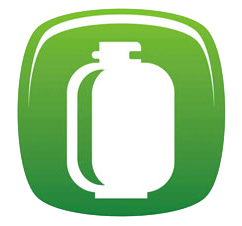
Studies by the Environmental Protection Agency show that propane heating systems generate 68 percent fewer greenhouse gas emissions than electricity, because most electricity is produced by coal-fired power plants. Propane has 50 percent less carbon than fuel oil, which means it produces far less particulate pollution when burned.
It is used in a number of different capacities throughout the Unites States for farming, businesses and in homes. It is a clean burning, natural resource used by millions of people on a daily and is one of the safest sources of energy available today.
- Propane won’t ignite when combined with air unless the source of ignition reaches 940° F
- Propane has the lowest flammability range of any alternative fuel
- Propane gas is nontoxic and produces minimal emissions
- Propane is not harmful to soil or water
- Propane leaks are easily detected because an odorant (ethyl mercaptin) with a scent similar to rotten eggs is added as a safety measure
- Unlike gasoline and alcohol fuels, propane can’t be ingested because it is stored in a closed container under pressure. It vaporizes when released from its container
- If propane gas leaks, it doesn’t puddle; it readily dissipates into the air
If you haven’t thought about heating with propane before, now is a great time it is an approved alternative fuel recognized by the Clean Air Act of 1990 and a qualifying alternative fuel, eligible for various federal tax incentives under the Energy Policy Act of 2005. Call our office today, at 540-687-3608 we’d be happy to tell you more about it!
